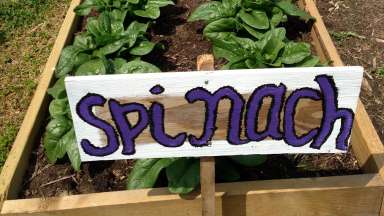Personal home gardens are highly encouraged by the City of Raleigh. Here is everything you need to know about starting your own personal home garden.
| Definition |
A home garden shall mean the property of a single-family or two-family residence used for the cultivation of fruits, vegetables, plants, flowers, or herbs by the residents of the property, guests of the property owner, or a gardening business hired by the property owner. The City of Raleigh does not currently regulate personal home gardens. (If interested in a garden for a multifamily site such as apartments or townhomes, please see Community Gardens.) |
|---|---|
| Approval | Farming and gardening for personal use is not currently regulated by the City of Raleigh except for the fact no animals can be raised on residential lots. Personal gardening on any residential lot is an allowed accessory use to single or two-family residences and requires no permit. |
| Size | Personal Home Gardens do not have a size requirement that is regulated by the City of Raleigh. |
| Zoning | Home gardens are allowed in all Residential zones. A site's zoning may be checked on the City-wide Zoning Map (iMaps interactive mapping program). |
| On-site Sales | Home gardens do not allow for sales. Produce shall be grown primarily for personal use. |
| Approval Process for On-site Sales | No sales. |
| Accessory Structures |
Detached accessory structures, such as storage or utility buildings, gazebos, trellises, or accessory greenhouse structures, are allowed, subject to issuance of a building and/or zoning permit. During the permit application review process, compliance with the requirements of the zoning district and the North Carolina Building Code will be evaluated. Structures and/or site uses related to creating a garden must meet applicable standards of the City code (e.g., shed size/placement, site maintenance, etc.). All necessary building/zoning permits must be obtained prior to construction. Contact Planning and Development for more information on required permits, fees and site plan regulations.
For more information reference UDO Article 6.7 |
| Animals | The raising of animals is not allowed for personal home gardens because animal raising is not allowed in Residential Districts. |
| Beehives | The raising of animals is not allowed in any Residential District. In all other permitted districts, a maximum of 2 beehives could be allowed at least 25 feet from any property lines. |
| Other Items to Consider |
Soil: Consider having your soil tested. Contact Wake County Cooperative Extension about having a soil test run. You should also consider whether the soil may be contaminated. Sun: Ensure that the site is not shaded by nearby buildings or trees. An open south-facing space is best because vegetables need at least 6 to 8 hours of sunlight per day. Shade in a small area can be beneficial for creating a shade garden and a comfortable seating area. Slope: Slope is an extra challenge and may make it difficult for people with mobility challenges. Flat lots are usually preferable, but home gardeners may find it advantageous to build raised beds so they can control the slope. Water: Rainwater captured through rain barrels or cisterns, for example, can be a great way to reduce the excess runoff from your property as well as provide a source of water for beneficial landscaping. You may wish to consider applying to help manage and re-use stormwater through the Raleigh Rainwater Rewards Program. |
